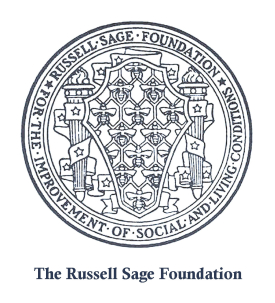Puerto Rico has high levels of income inequality, however, we know little about the causes of this inequality. Sociologist Elizabeth Fussell will examine how skin color, bilingualism, U.S mainland migration, and migrant social networks are associated with social and economic inequality in Puerto Rico. She will develop and administer surveys for her study.
For nearly 30 years, the Wake County Public County School System (WCPSS) in North Carolina operated an ambitious desegregation initiative, which included reassigning students to schools in order to achieve a target level of diversity in each of the county’s schools. However, in 2009, voters elected opponents of the efforts to the school board, who then ended the initiative the following year. Political scientist Deven Carlson and sociologist Thurston Domina will examine how school reassignments influenced voter participation over time.
Despite extensive research about the nature and prevalence of racism, classism, and sexism, we know little about everyday people’s beliefs and perceptions about these concepts. Sociologist Lauren Valentino will examine how people determine whether an interaction is racist, classist, and/or sexist. She will conduct a survey experiment for her study.
This grant is co-funded with the Carnegie Corporation
Achieving markers of adulthood, such as completing one’s education and attaining financial independence, is taking longer now than it has for previous generations. Sociologist Dialika Sall will examine how race, class, and immigrant background intersect and shape the transition to adulthood for second-generation West African youth. For her study, she will conduct follow-up interviews with participants whom she previously interviewed between 2015 and 2018 while they were in high school.
Over the past 30 years, the U.S. has seen an increasing share of national income going to the top one percent of earners. At the same time, there have been few substantial policy efforts to moderate rising inequality. While some states have passed millionaire taxes, federal tax rates on the rich have been decreasing for decades. Former President Trump’s 2017 Tax Cuts and Jobs Act (TCJA) bill directly cut taxes for the rich. It also made it more costly for states to tax the rich by limiting the federal deduction for state and local taxes.
Renters are spending increasing proportions of their incomes on rent and their constrained rental options often expose them to exploitative landlords and substandard housing. However, the experiences of American Indian (AI)/Alaska Native (AN) and Hispanic renters outside of large cities have not been studied. Sociologies Elizabeth Krover-Glenn, Junia Howell, and Ellen M. Whitehead will examine the extent to which rental property management practices differ across residents, neighborhoods, and cities.

The Use of Standardized Ability Tests in American Secondary Schools and Their Impact on Students, Teachers, and Administrators
About This Book
This report, a collaboration between Project Talent at the University of Pittsburgh and the Russell Sage Foundation, presents the results of a survey of the attitudes of secondary school students, teachers, and counselors toward ability tests and provides an appraisal of the extent of these tests’ use.
RSF Journal
View Book Series
Sign Up For Our Mailing List
Apply For Funding
Racial and ethnic segregation has resulted in persisting wealth gaps between White Americans and Black Americans. Previous literature on the causes and consequences of racial/ethnic residential segregation has focused on the late 20th century, and little is known about patterns of segregation prior to 1940. Sociologist John R. Logan will use census data and historical GIS maps to examine patterns of segregation in U.S. metropolitan areas from 1900 to 1970.
Pagination
- Previous page
- Page 14
- Next page
